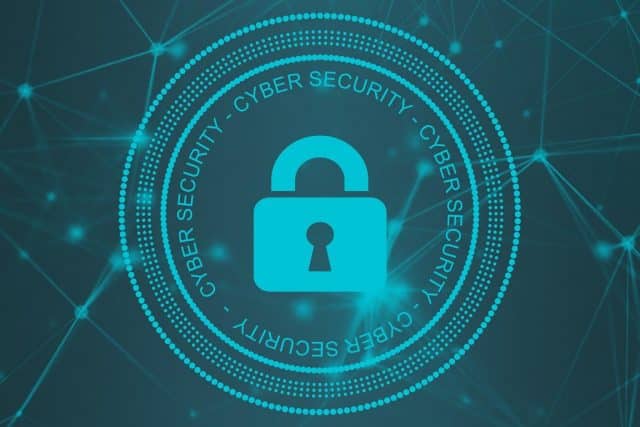Why every government should have a cybersecurity minister

The world has witnessed the worst kind of cyberattacks that have threatened our personal privacy, stolen private information, and cost billions in lost business and productivity. The past five years have seen increased cyber attacks from home hackers, and with the pandemic, the risk has only increased alongside remote working. The risk of cyberattacks calls for the necessity of establishing proper safety measures, such as by naming a cybersecurity minister for governments to protect the people and organizations.
The only way to secure the internet is for all governments to take a serious approach to cybersecurity. That means establishing a cybersecurity minister in each government to oversee cybersecurity practices in their own country. This is the only way for governments to be confident that every country is up to date on cybersecurity practices.
A cybersecurity minister is not a new thing, but it should happen everywhere as more people are relying on technology and the internet than ever before. The argument in favor of such a position is simple: our modern society runs on computers and networks, so what better person to protect it than an experienced leader who understands the importance of national security?
Government Steps Supporting Cybersecurity Initiatives
Some countries have recently appointed programs or leaders as the head of cybersecurity.
In 2018, Canada’s government launched a Canadian Centre for Cyber Security (the Cyber Centre) as the country’s national authority on cybersecurity and cyber threat responses. As a part of Canada’s National Cyber Security Strategy, the Cyber Centre will provide advice and guidance to businesses and all Canadians as the central trusted government source of information.
Since the pandemic, governments have turned to focus even more on implementing safety measures for cybersecurity. In November 2020, the UAE established a new national cybersecurity council to develop policies and laws to help strengthen cybersecurity. Prime minister Rashid Al Maktoum stated that security in the digital space is equally important as security in different areas.
Similarly, in November 2020, the British government announced that the Ministry of Defence and Government and Communications Headquarters would be joining forces to create a partnership: the National Cyber Force (NCF). Their objective is to help businesses and government organizations protect themselves from cyber threats, including disrupting or destroying communications systems that pose a security threat. There were many reasons for this change in tact; the main one being the growing number of cyber incidents both at home and abroad.
Why Every Organization Needs a Designated Cyber Team
Why does every organization need a designated cyberteam? The answer is that cybersecurity has emerged as the most important issue in security. The rapid increase of technology has moved faster than any other technological advancement we have encountered, and cyberattacks are becoming more frequent and sophisticated every day. Cybersecurity is not exactly a new topic of discussion. Still, it has become a hot one lately as hackers worldwide are becoming more sophisticated. As our lives are increasingly reliant on technology and the Internet, there is no room for error.
The Target cyberattack provides just one example of the vulnerabilities that face organizations. In brief, between November 27 and December 15, 2013, a security breach happened at the US retailer branch. The hackers stole customers’ names, addresses, and phone numbers, along with payment card numbers and credit card verification codes, and used this information to steal money from customers' bank accounts. Overall, around 40 million customer payment card accounts were impacted.
This cyberattack cost Target up to USD 18.5 million. Still, a worse consequence was that it damaged the retailer's reputation by making its customers feel insecure about their personal information and caused them to distrust Target and other large retailers. The Target incident is just one of many examples of large companies with security weaknesses exploitable to hackers. The event spawned the company’s development of a comprehensive information security program, including the employment of an executive or officer responsible for executing the program.
Cybersecurity Leadership Qualifications
Every information and communication technology (ICT) system is vulnerable to attack. In today's world, computer networks have grown so complex that knowledge is the only tool we have as humans to protect them from cyberattacks. Algorithms, cryptography, data security, and privacy are critical to understanding cybersecurity.
Cybersecurity requires a different skillset and will demand an entirely new type of politician in government. Current politicians lack the mathematical background they need to thoroughly understand the complexity of cyberspace. It's not just a matter of understanding the technology. Cybersecurity is so complex–and fast-changing–that ministers need to be conversant with a large number of disciplines, including social science, behavioral science, psychology, and economics, to understand how cyberspace can be used against the government as well as for it.
Cybersecurity Professionals
As no minister or individual can be knowledgeable about absolutely everything in the cybersecurity space, governments and businesses alike need to have a team of cybersecurity consultants.
A cybersecurity team is like any other team: It has different members, each with unique skills. The most important of these are the security engineers tasked with protecting the organization's systems and networks. The security engineer must be familiar with the technology the organization leverages as well as the threats it is designed to combat. Developing an in-depth security plan, such as this, however, can be extremely difficult and time-consuming. The skills of a security engineer vary but include knowledge of security techniques and processes like incident response and penetration testing, as well as knowledge of IT and OT security.
While some countries have recently introduced a minister of cybersecurity to address the issue of cyberattacks becoming both more prevalent and sophisticated, the adoption of cybersecurity leadership roles should extend to organizations large and small. Understanding the economic impact of businesses shutting down and pausing operations, governments should be more dedicated to finding a solution, whether it is the cybersecurity minister or something else entirely.

Anas Chbib is one of the most respected leaders in the security industry, known for his unmatched business ethics, inspirational entrepreneurial spirit, and fierce desire to offer organizations worldwide highly-secured environments in order to ensure business continuity and better service. Anas is currently the Founder and CEO of AGT, a highly respected, international cybersecurity firm.